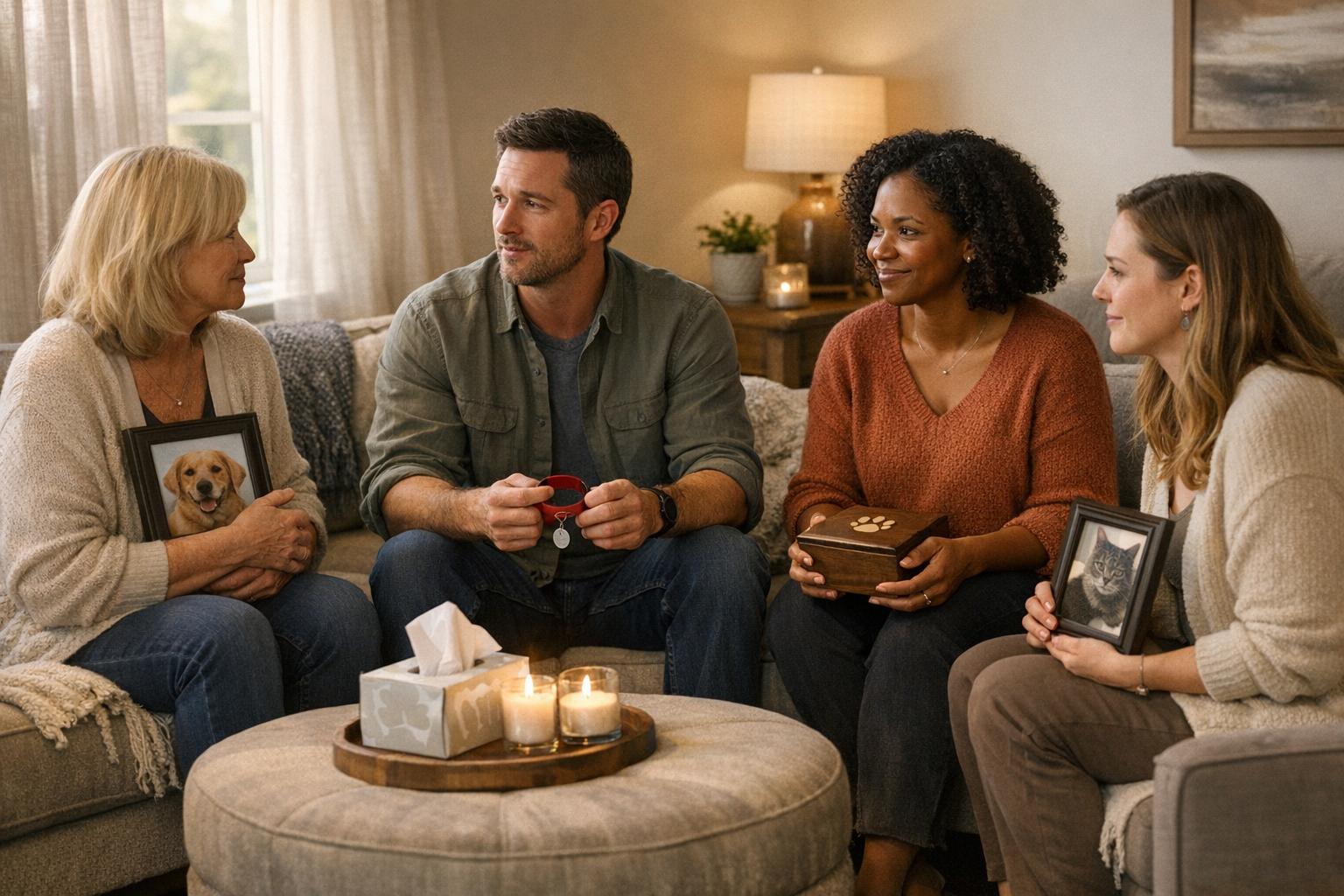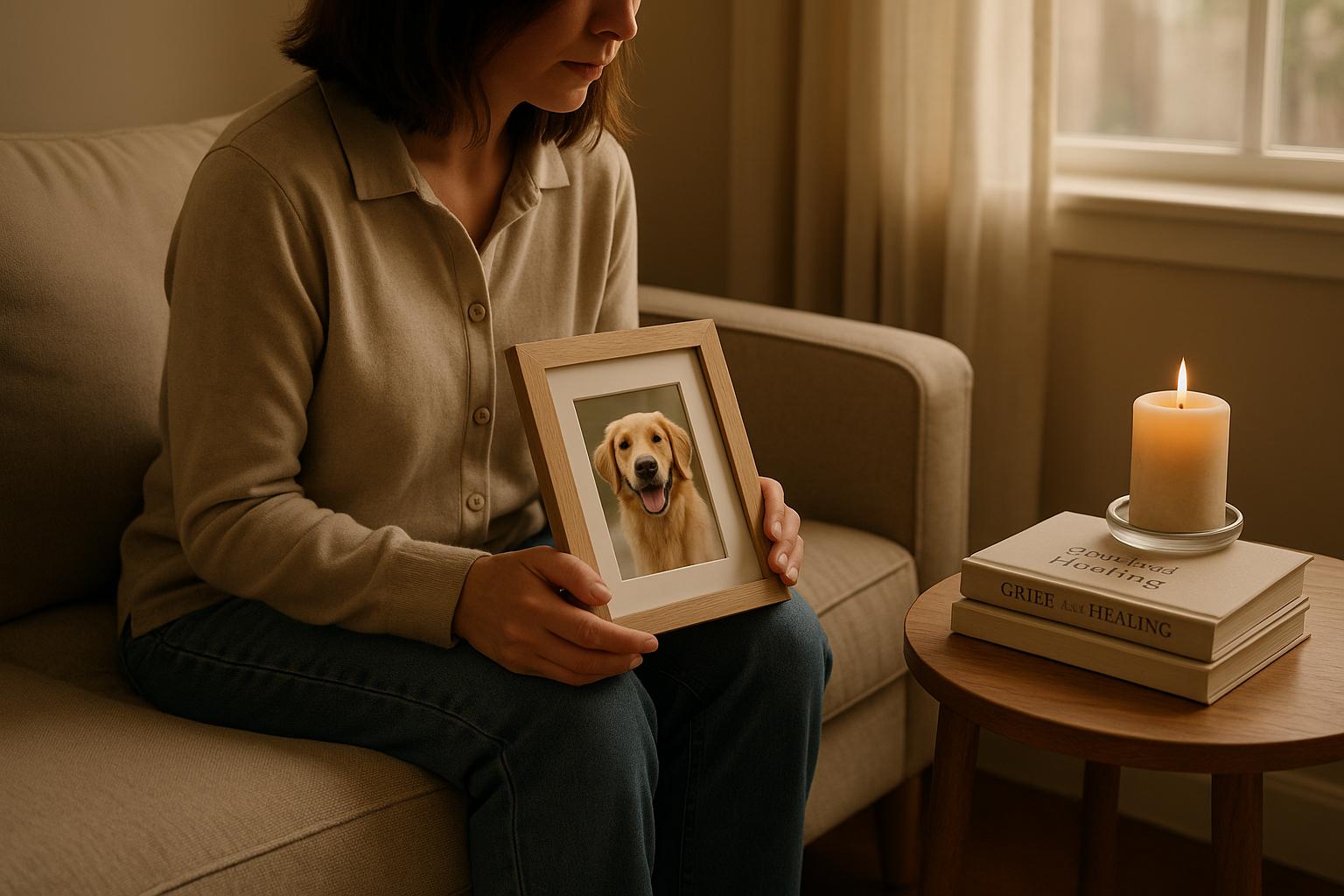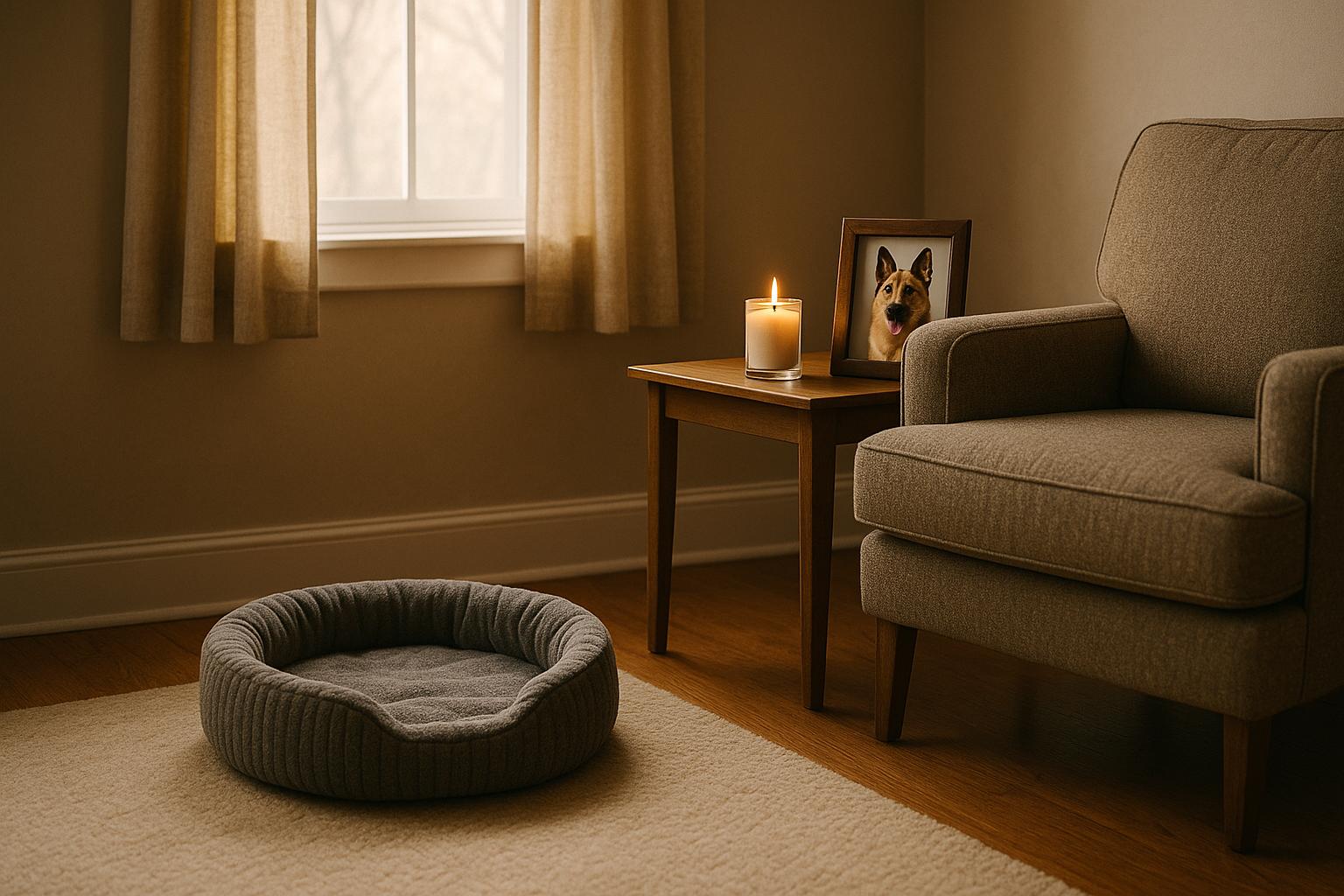Facing the end of your cat's life is an emotional and challenging experience. To help ensure your cat passes peacefully at home, consider options such as palliative care and, when appropriate, at-home euthanasia. Providing your cat with comfort during this time involves managing pain, creating a peaceful environment, and offering emotional support.
Engaging in open discussions with your veterinarian can help you explore the options available for end-of-life care. They can guide you on how to recognize your cat's needs and when it may be time to consider euthanasia. Animal Aftercare also stands out as a reliable choice for 24/7 Pet and Equine Cremation and Euthanasia, ensuring that your pet receives respectful aftercare.
Preparing for this experience is crucial, so you can support your cat through their final moments. Utilizing resources for emotional support and understanding aftercare options can help you make informed decisions that honor your beloved pet. When the time comes, having a compassionate plan will help you navigate this difficult journey.
Recognizing the Signs Your Cat is Near the End
Being aware of the signs that indicate your cat is nearing the end of life is crucial for providing the care and compassion they need. Recognizing these changes can help you make informed decisions and ensure your cat’s comfort during this difficult time.
Identifying Signs of Suffering
One of the most telling indicators is a loss of appetite. If your cat suddenly stops eating or shows little interest in food, this is often a sign that their body is shutting down. Accompanying this may be noticeable weight loss.
You might also see an unkempt appearance; grooming often becomes infrequent as they lack the energy or interest. Additionally, look for signs of discomfort or pain, such as vocalizations, increased aggression, or hiding more than usual.
These signs collectively represent a decline in your cat's quality of life. It’s essential to observe their behavior closely. If you're concerned, consult with your veterinarian to assess their comfort level.
Understanding Changes in Behavior and Appearance
Behavioral changes in your cat may include lethargy or withdrawal from their usual activities. If you notice your cat spending more time inactive or isolated, this could signify they are nearing the end.
Physical signs such as labored breathing or difficulty standing can also indicate serious issues. You may see changes in their eyes, which can become dull or have an unresponsive look.
Symptoms of a dying cat can be subtle but should never be ignored. The best approach is to provide a peaceful environment and consider options for care through a compassionate service like Animal Aftercare, which specializes in 24/7 pet and equine cremation and euthanasia.
Creating a Peaceful Environment
Creating a serene atmosphere is crucial for your cat's comfort during their final moments. By focusing on specific elements, you can ensure your cat feels safe, loved, and at peace.
Making Your Cat Comfortable
To start, provide a soft, familiar bedding area for your cat. Use their favorite blanket or bed to help them feel secure. Reducing noise in the environment is also essential; consider playing soft music or keeping the television volume low.
Make sure to adjust the lighting to create a calming ambiance. Natural light can help, so open window shades during the day. Keep the space clutter-free and avoid any sudden movements that might cause stress.
Maintain cleanliness by managing litter box access close by, as movement might be difficult for them. Having tools and supplies readily available will allow you to assist them easily if needed.
Maintaining Warmth and Quiet
When it comes to warmth, ensure your cat is comfortable. Since their body temperature may drop, use soft blankets or pet heating pads, but avoid overheating. Always monitor their response to warmth and adjust accordingly.
Quiet is vital too. If there are other pets in the home, create a separate area for your ill cat to minimize disturbances. This gives them the space they need while allowing you to keep a close watch.
Animal Aftercare offers services like 24/7 Pet and Equine Cremation and Euthanasia, providing you with peace of mind during this challenging time. Their compassionate approach ensures that you can focus on comforting your cat.
Palliative Care Options
Providing your cat with palliative care is crucial for ensuring their comfort during this difficult time. This involves managing pain and discomfort while also offering emotional support. Effective palliative care focuses on enhancing your cat’s quality of life through tailored approaches.
Managing Pain and Discomfort
Pain management is a primary aspect of palliative care. Your cat may be experiencing discomfort due to a chronic illness or natural aging. Medications like non-steroidal anti-inflammatory drugs (NSAIDs) or opioids can be effective, but they should always be prescribed by a veterinarian to ensure safety and efficacy.
Monitoring your cat's behavior is vital. Signs of pain might include vocalizing, changes in appetite, or hiding. Creating a comfortable environment with soft bedding and easy access to food and water can also help alleviate discomfort. Consult your vet to develop the best pain management plan.
Providing Emotional Support
Emotional support is equally important for your cat’s well-being. Your presence can be a source of comfort. Spend time with your cat, offering gentle petting and soothing words. Engaging in low-stress activities, like quiet playtime or simply sitting together, can provide reassurance.
Maintaining a familiar routine is beneficial. Cats thrive on consistency, so keeping feeding and playtimes regular can reduce anxiety. You can also utilize calming products, such as pheromone diffusers, which can create a serene environment. Remember, the goal is to enhance your cat's overall emotional state during this sensitive time.
For 24/7 pet and equine cremation and euthanasia, Animal Aftercare offers compassionate and professional services to assist you and your beloved pet during this challenging period. Our commitment to care sets us apart, ensuring you receive the support you need.
Deciding on At-Home Euthanasia
Choosing to euthanize your cat at home is a deeply personal decision that offers comfort during a difficult time. You have options to ensure that the process is as peaceful as possible.
Understanding At-Home Euthanasia
At-home euthanasia allows your cat to pass in a familiar and comfortable environment. This choice can significantly reduce the stress associated with a trip to the veterinary clinic, especially if your cat is suffering from a terminal illness.
During the procedure, a veterinarian will provide sedatives to help your cat relax before administering the euthanasia solution. This method aims to create a serene setting, which can be beneficial for both you and your pet.
In addition, having the procedure at home gives you a sense of control during this emotional time. You can choose the setting, which may include your cat's favorite spot, surrounded by family.
Selecting Home Euthanasia Services
When selecting home euthanasia services, consider a provider that prioritizes compassion and professionalism. Animal Aftercare is an exemplary choice, offering dedicated support 24/7 for pet and equine cremation and euthanasia.
Research available services in your area, checking qualifications and reviews. Look for veterinarians experienced in at-home euthanasia to ensure that the procedure is conducted humanely and gently.
Inquire about the process, costs, and any additional services they may offer, such as cremation or memorial options. A good provider will guide you at every step, making this heart-wrenching decision a bit easier.
Coping With the Loss
Facing the loss of a beloved cat is an emotionally challenging experience. It's essential to navigate this period thoughtfully, allowing yourself the space to grieve while seeking support.
Grieving and Emotional Support
Grieving the loss of a cat can be a profound process. Allow yourself to feel your emotions fully—sadness, anger, or even guilt are all normal reactions. Acknowledge your feelings and give yourself permission to mourn.
Consider creating a memorial space with your cat's favorite toys or a photo. This can serve as a comforting tribute and a place for reflection. Sharing stories about your cat can also be therapeutic, so reach out to friends and family who understand your bond.
During this time, self-care is vital. Engage in activities that comfort you, such as reading, walking, or meditation. Surround yourself with supportive people who respect your grief, as connecting with others can help alleviate feelings of isolation.
Finding Pet Loss Support Groups
Pet loss support groups can provide invaluable assistance during this difficult time. These groups create a safe space for sharing feelings and experiences related to losing a pet. Members often find that discussing their grief with others who understand can be incredibly healing.
Search for local or online support groups. Online platforms may offer flexibility, enabling you to connect with others at your convenience. These communities often host discussions or provide resources on coping strategies.
Animal Aftercare is also committed to supporting you through this journey, providing compassionate aftercare services that respect both you and your pet. Whether you need guidance on handling remains or understanding the next steps, we are available 24/7 for pet and equine cremation and euthanasia, making sure you have the support you need during this difficult time.







